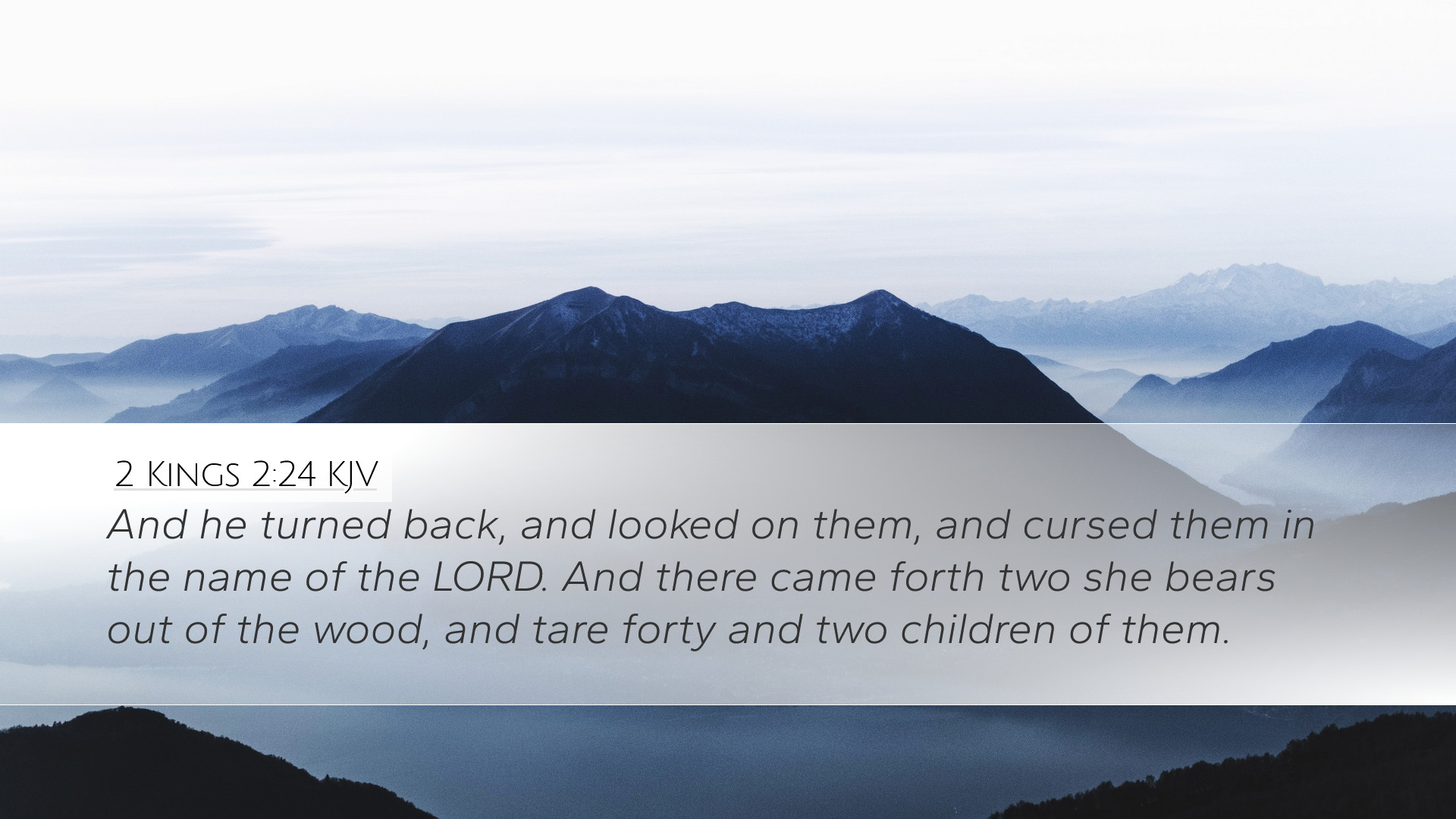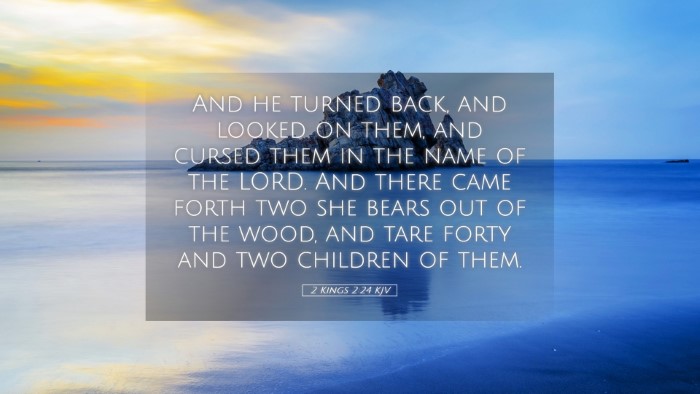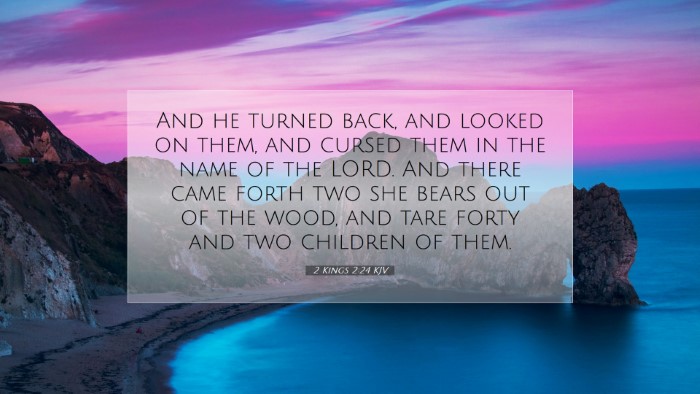Commentary on 2 Kings 2:24
Verse Text: "And he turned back, and looked on them, and cursed them in the name of the LORD. And there came forth two she-bears out of the wood, and tare forty and two children of them."
Introduction
The narrative of Elisha's encounter with the children in 2 Kings 2:24 is a challenging passage that raises questions regarding divine judgment, the nature of prophetic authority, and the character of God. This verse features Elisha after the ascension of Elijah, marking a critical transition in prophetic leadership and contextualizing the authority bestowed upon Elisha.
Contextual Analysis
Understanding 2 Kings 2:24 begins with its placement within the broader context of Elisha's ministry. Having just received Elijah’s mantle, Elisha embarks on his prophetic duties filled with the spirit and power of his predecessor. The geographical setting, Bethel—a city known for its idolatrous worship—provides insight into the spiritual climate that Elisha confronts (Matthew Henry).
Character of the Children
In the original Hebrew, the term translated as "children" can refer not only to young children but also to young men, suggesting a maturity in their defiance (Albert Barnes). Their mocking of Elisha, particularly their challenge of “Go up, you baldhead” serves as a direct affront to his prophetic authority and by extension, to God Himself.
Theological Implications
This confrontation poses significant theological implications regarding the gravity of irreverence toward God's messengers. The curse pronounced by Elisha is emblematic of the weight of prophetic utterance in the Old Testament; it signifies a serious divine pronouncement that is not to be taken lightly (Adam Clarke).
Exegesis of the Curse
Elisha’s curse in the name of the LORD is noteworthy. It invokes God's power and authority in a moment of human mockery. The act of cursing is not arbitrary; it serves as a protective measure for God's reputation, reminding us of the seriousness with which God views blasphemy and disrespect toward His anointed (Henry).
Divine Response and Judgment
The response to Elisha’s curse, where two bears come forth to maul the children, underscores the immediacy of divine judgment in the Old Testament. This episode signifies God’s intolerable stance toward irreverence and serves as a warning about the consequences of mocking divine authority (Barnes).
This action raises complex questions about the nature of God's judgment. It reflects a theme prevalent in Scripture: God protects His servants and maintains His holiness, even if it means executing severe judgments. However, it also challenges modern sensibilities about justice and mercy.
Pastoral Applications
For pastors and theologians, this passage is a reminder of the importance of respecting the ministry and the office of spiritual leaders. It serves as a cautionary tale to confront the growing trend of dismissing biblical authority within both the church and society (Clarke).
Discipleship and Reverence
From a discipleship perspective, this passage encourages a culture of reverence towards God’s Word and His messengers. It compels students of theology to engage with the text critically and to understand the weight of spiritual authority in their studies and practices.
Conclusion
2 Kings 2:24 offers profound insights into the dynamics of prophetic ministry, divine authority, and human responsibility. It encapsulates the seriousness with which God treats His relationship with His people and the covenant of respect that He calls for between His messengers and the community.
In our contemporary context, the implications are both challenging and encouraging, calling us to a renewal of respect for God’s appointed leaders and for the holy things of God.


